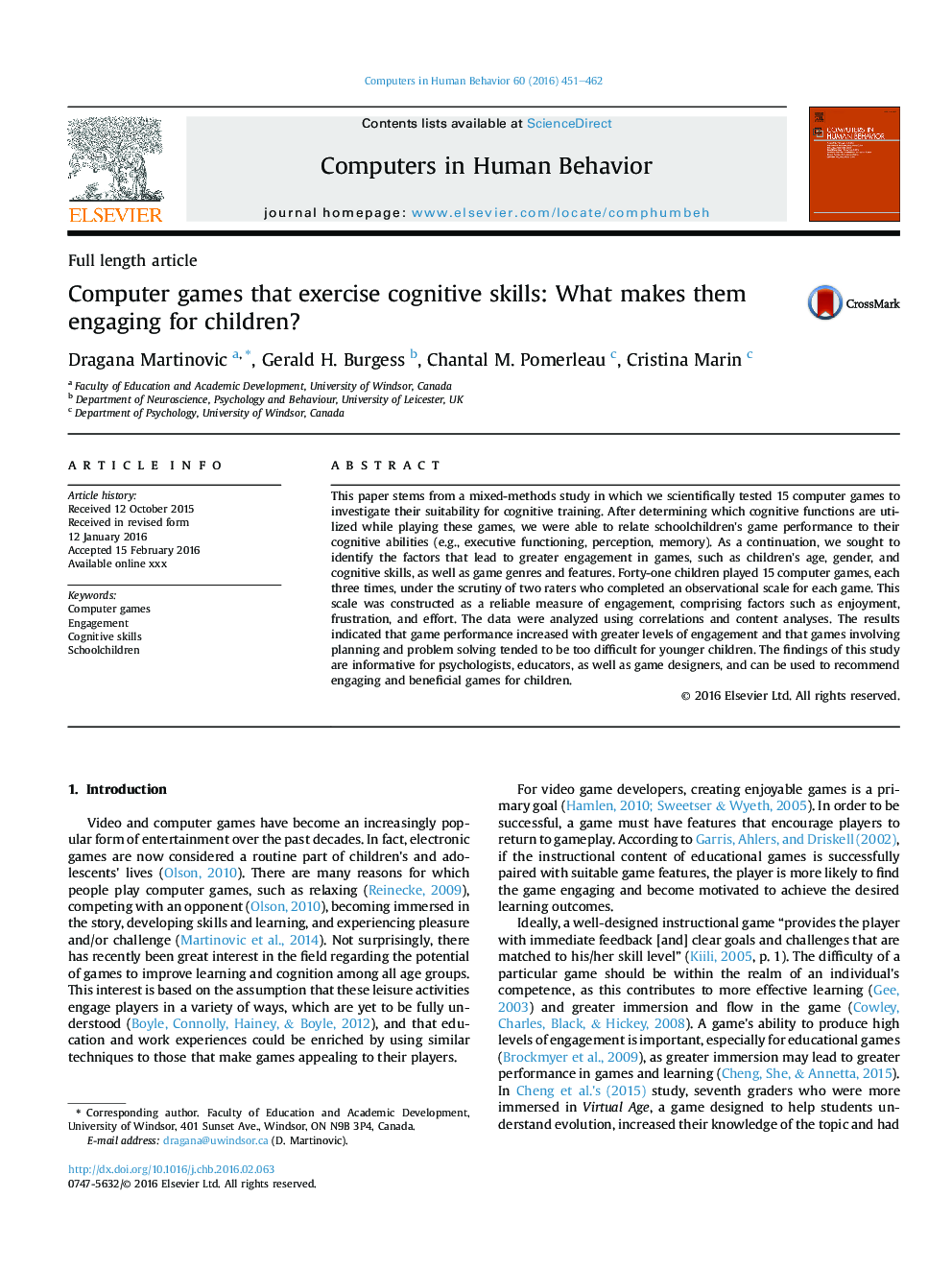| Article ID | Journal | Published Year | Pages | File Type |
|---|---|---|---|---|
| 6837302 | Computers in Human Behavior | 2016 | 12 Pages |
Abstract
This paper stems from a mixed-methods study in which we scientifically tested 15 computer games to investigate their suitability for cognitive training. After determining which cognitive functions are utilized while playing these games, we were able to relate schoolchildren's game performance to their cognitive abilities (e.g., executive functioning, perception, memory). As a continuation, we sought to identify the factors that lead to greater engagement in games, such as children's age, gender, and cognitive skills, as well as game genres and features. Forty-one children played 15 computer games, each three times, under the scrutiny of two raters who completed an observational scale for each game. This scale was constructed as a reliable measure of engagement, comprising factors such as enjoyment, frustration, and effort. The data were analyzed using correlations and content analyses. The results indicated that game performance increased with greater levels of engagement and that games involving planning and problem solving tended to be too difficult for younger children. The findings of this study are informative for psychologists, educators, as well as game designers, and can be used to recommend engaging and beneficial games for children.
Related Topics
Physical Sciences and Engineering
Computer Science
Computer Science Applications
Authors
Dragana Martinovic, Gerald H. Burgess, Chantal M. Pomerleau, Cristina Marin,
